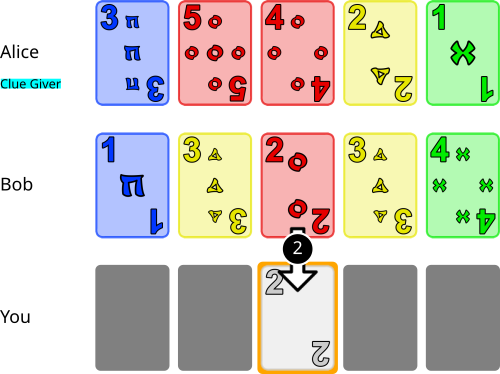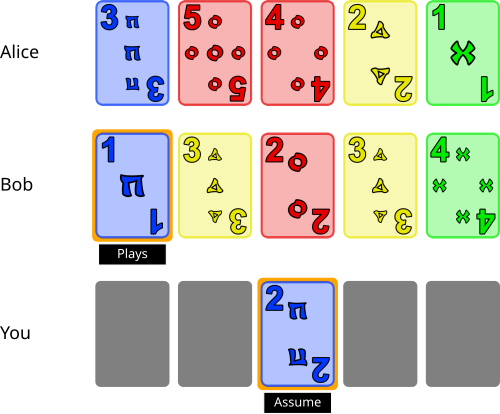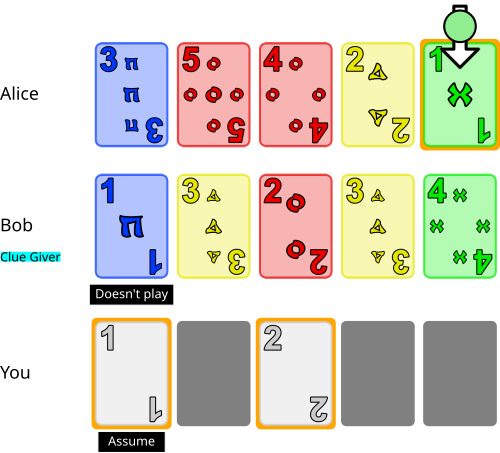What does it mean to “trust” someone?
I could say trusting someone means assuming they would do me no harm—in the sense of trusting people on the street to not pull a knife on me. Or, to make it less personal, perhaps trusting someone means expecting them to do no harm, in general—and thus that a “trustworthy” individual would not steal someone else’s wallet foolishly left on a public bench.
That is how I understood “trust” in the past—an extension of giving benefit of doubt and of assuming stupidity over malice. I would carefully plan around people I trusted to not follow through; I was always one with a fallback, a ready solution for most contingencies—and I was proud of that. In fact, I even applied this understanding of “trust” to faith—I would pray, then make plans around any po…
What does it mean to “trust” someone?
I could say trusting someone means assuming they would do me no harm—in the sense of trusting people on the street to not pull a knife on me. Or, to make it less personal, perhaps trusting someone means expecting them to do no harm, in general—and thus that a “trustworthy” individual would not steal someone else’s wallet foolishly left on a public bench.
That is how I understood “trust” in the past—an extension of giving benefit of doubt and of assuming stupidity over malice. I would carefully plan around people I trusted to not follow through; I was always one with a fallback, a ready solution for most contingencies—and I was proud of that. In fact, I even applied this understanding of “trust” to faith—I would pray, then make plans around any possible outcome. If God wills it, so be it, I’d happily accept His benevolence. If God wills it not... I’ll survive, He has other plans in store. That’s what I called “faith”; ignoring Apostle Paul writing that “faith is the assurance of things hoped for, the conviction of things not seen” (Hebrews 11:1, ESV)—my faith was more of a vague optimism for the future.
But... that is a very shallow kind of trust.
Enter Hanabi
Hanabi is a card game for two to five players, where players collaborate to build piles from 1 through 5 in five different colors. Unlike other card games, in Hanabi players can see everybody else’s cards... but not their own. Instead, players have to give “clues” to other players to communicate enough information to get all cards played out.
This is similar to real life, where we don’t know ourselves except through the warped mirror of everyone we interact with.
Unlike real life, clues and communication in Hanabi is very limited. While your team could collaborate to clue all of your cards so that you have perfect information, that would leave everybody else with no information. Instead, players have to use the fewest number of clues to cause the most possible benefit for the team.
One evening, while browsing the Internet, I stumbled upon the Hanabi H-Group Conventions—a system for playing Hanabi. I was curious, and the conventions were very well described, so I decided to join and play a few games with H-Group members.
In the H-Group conventions, each clue promises other players that some of their cards should be played, discarded, saved until later. And that’s where trust comes in.
Let me illustrate with an example...
Imagine you are playing a three-player game: Alice goes first, Bob is second, and you go third.
At the very start of the game, there are no cards played. As a team, you would have to play cards of each color in order from 1 to 5.

You can see that Alice has a Blue 3, a Red 5, a Red 4, a Yellow 2, and a Green 1. Bob has a Blue 1, a Yellow 3, a Red 2, another Yellow 3, and a Green 4. You have 5 cards, but have no idea what they are.
If it were your turn, you could tell to Alice about her Green 1, or you could give a clue to Bob about his Blue 1. Either one would allow them to play a card.
However, it’s currently Alice’s turn, and she clues your third card as a 2!
What could that mean?
According to the Level 1 H-Group Conventions, a 2 clue to a card which is not the right-most (“Chop”) card is a Play Clue.
So, Alice is promising that you can play that card.
But, you can clearly not play a 2 in this situation! No matter what color that 2 is, with no 1-s on the board, it would be out of order.
That is because Alice is using the “Finesse” convention. She is promising the whole team that she can see all the connecting cards, and that if people who can’t see the connection play their “finesse-position” (left-most) card, the 2 would play just fine.
Therefore, you can expect Bob to play his left-most card, which is a Blue 1. Then you can play your card, which you would assume is a Blue 2.
That’s how things usually work with the H-Group conventions:

Except...
Bob does not play the Blue 1! Instead, Bob goes around and clues Alice’s Green 1.
Does that mean that Alice made a mistake or that Bob failed to see Alice’s clue? Should you play the 2 regardless, since you had a Play clue on it? (Clearly not, it is still out of order.)
Well, in this case, this is a Self-Finesse from Level 2: Alice sees that you can play the 2 after you play your own finesse-position card! Bob can also see your finesse-position card, and since it matches the 2 you’ve been clued, he keeps playing as normal. Bob would blind-play his finesse-position card only if your card didn’t match.

So in this case, you have to trust that both Alice and Bob know what is going on, and blindly play your own left-most card, then assume it’s the same color as the 2 that you were told to play. (But not a Green 1/2, since Bob told Alice to play her Green 1)
It is a lot of information for a single clue, and it assumes that multiple people made no mistake.
If you play blindly, and it fails, the team would lose a “life”, and you would be the cause of it.
It is scary.
But you still have to trust
If you assume Alice made an error with her clue and it’s a regular Finesse, you would be confused by Bob playing his Blue 1 and then be stuck with a playable Blue 2 until someone wastes a clue to explain things to you.
If Bob clues Alice and you assume that Bob missed the Finesse, you are going to be stuck with a matching 1 and 2 that you could have played.
Worse yet, if you are holding a Green 1 and a Green 2, and manage to get Alice to play her Green 1, it is going to require an extra clue to get your Green 2 to play—that’s a whole 2 clues for just 1 card!
And worst of it, if others never clue your hand, you might get paranoid that you are holding valuable cards that they are keeping secret from you... and never discard any cards! That too, wastes valuable clues, as discarding is what generates new clues.
It’s impossible to fully experience that need to trust teammates without playing the game. The example above gives a taste of it, but imagine 15-30 minutes of second-guessing every single clue you receive, trying to figure what others see that you don’t, and what they are trying to communicate to you.
The conventions (whether H-Group Conventions or some other set of rules) are there to help you communicate directions to your teammates. Your teammates would behave very predictably most of the time, but would occasionally play, discard, or clue cards for no apparent reason at all. Trusting them in those moments is key.
How that taught me to trust
After playing a few games of Hanabi, I was struck by how untrusting I actually was. I, a newbie, was playing with players with months and years of experience; and yet, my first reaction to seeing their actions was that they made an error, forgot something obvious, and set the team up for failure.
I was the player paranoid that my hand is full of valuable cards the team needs later. So I never discarded.
I was the player cluing cards that someone else had already “Finessed”. So I wasted even more clues.
I was the player forgetting the “Prompt” convention and confusing everyone 😂
But over time, in after-game reviews, I realized the need to trust my teammates. As clues and communication were so scarce, every single clue meant something. And I had to listen for that something, trusting that teammates have a plan that I need to cooperate in, just like I have a plan for them to cooperate in.
From Hanabi, I took that to real life. I know that I can’t trust someone to never make mistakes. But I now more likely to acting while anticipating others’ actions, instead of waiting on everything to resolve before I start. In faith too, I now understand how weak “vague optimism” is. God has a plan, sure; but that is no reason to passively wait for Him to establish it.
I’m thankful for that one silly cooperative card game which taught me to trust. ✨
Browse more articles?
← I made an ideas page! Articles tagged life (8/8) →|
← Chasing shiny things Articles tagged thoughts (7/7) →|
← I made an ideas page! Articles tagged 100DaysToOffload (32/32) →|
← I made an ideas page! Articles on this blog (39/39) →|